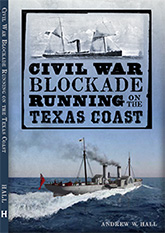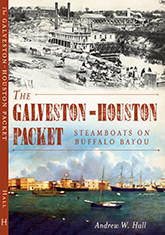General Walker’s Pardon

Of my several Civil War ancestors, the only one who might be considered famous (at least among Civil War buffs) is Major General John George Walker (1822-1893), who commanded a division in the Army of Northern Virginia’s Maryland Campaign of 1862, and played an important role in the capture of Harpers Ferry and the Battle of Sharpsburg (Antietam). He was subsequently assigned to command of a division in the Trans-Mississippi Department, and at the close of the war commanded the Confederate Military District of Texas, New Mexico and Arizona. General Walker is my great-great-great uncle, being the younger brother of Margaret Courtenay Walker (1818-1869), my mother’s mother’s father’s mother.
At the close of the war, Walker did not wait for parole, but when the Confederacy collapsed and his military command dissolved in the spring of 1865, he headed to Mexico, and eventually ended up in London. While it’s generally understood that the war “ended” with Lee’s surrender to Grant at Appomattox in early April 1865, that’s largely a convenient shorthand; the war dragged on for some weeks still, especially in locations far removed from Virginia. To cite just one example, the Federals boarded and burned the blockade runner Denbigh at Galveston on the morning of May 24, 1865, the same date that General Sherman’s Army of the Tennessee marched up Pennsylvania Avenue in Washington as part of the nation’s victory celebration.
Walker later claimed that he did not surrender himself to federal authorities for parole because of a widespread belief that the senior officers of the Confederacy would be tried by civilian or military tribunals for treason. He is correct in this, at least in saying that the fate of senior Confederate military officers was very much an open question at the time. Lincoln had ordered an amnesty for enlisted men and junior officers as far back as 1863, but it explicitly exempted more senior military officers and government officials. There was a strong sentiment in the North to hang Jefferson Davis, Lee, and other Confederate leaders, and President Johnson did not order a general amnesty, contingent on swearing allegiance to the United States, until the end of May 1865. Walker’s decision to flee to Mexico without waiting to be captured is understandable, at least on a personal level.

“President Johnson in the attitude of pardoning rebels who have returned to their allegiance. Hundreds of these pardon-seekers daily besiege the White House. They crowd into the ante-room and are ushered into the President’s presence each in his turn, and if found all right on the record they are pardoned, otherwise not.” Harper’s Weekly, October 14, 1865.
In the fall of 1865, writing from Liverpool, Walker requested a pardon from President Johnson. It’s not clear what became of that request, but in October 1866 Walker traveled to Washington, D.C. to plead his case in person. In his application, Walker wrote:
Washington, D.C.
October 26, 1866To His Excellency
The President of the U.S.Sir,
Early in September of last year I had the honor to address you a communication from Liverpool, England, setting forth the circumstances of my absence from the United States, and applying to be reinstated in my citizenship. I stated in that application that I was a captain in the United States Army at the commencement of the late Civil War, and that after the acceptance of my resignation by the War Department, I accepted services under the late Confederate government, and at the close of the war was a Major General commanding a corps of twenty-eight regiments of Texans in that state. When it became evident that the surrender of troops west of the Miss. River was inevitable, notwithstanding my strenuous exertions to prevent it, my command became thoroughly disorganized, broke up and, seizing public property, disbanded. I stated also that in consequence of a belief, prevalent in Texas at the time, formed upon statements published in the newspapers published at the North, that officers of high rank in the Confederate Army would be held for trial before Civil or Criminal tribunals of this Country for their participation in the war, I determined to withdraw from the country — that I consequently went to England where I was them and am still residing, but regard myself as a citizen of Texas to which state I expect to return.
I stated, which I desire now to reiterate, that I entirely and with perfect good faith consider the issues growing out of the war, or rather the issues that led to it, or which brought it about as practically settled and disposed of, and in common with my fellow citizens of the late Confederate States are desirous of rehabilitating myself in my citizenship, and to take upon myself to discharge in good faith all its obligations.
I would state that I am not a graduate of the U.S. Military Academy, & that I know of no other cause of disfranchisement and civil disqualification except that of having been an officer of the United States Army before the late war.
I am, Sir,
Your obt. servant,
John G. Walker
 Major General Gordon Granger
Major General Gordon Granger
While waiting for news of his application for a pardon, Walker received news that his wife, still in the U.K., was seriously ill, and he returned there to look after his family. But by March 6, 1867, he was back in Washington, applying personally to the U.S. attorney general, Henry Stanbery. On Stanbery’s own letterhead, with “Attorney General’s Office” carefully marked out across the top of the page,Walker again made his case, this time attaching new letters of reference from Paymaster General Benjamin W. Brice and Major General Gordon Granger, the officer who had occupied Galveston, Texas in June 1865 and whose General Order No. 3, formally freeing slaves throughout the state, is the origin of Emancipation Day, better known as Juneteenth. Granger’s note, addressed to the president, was direct:
Having been apprised that John G. Walker, late a General in the Confederate Army has applied for a pardon. I have the honor to state that I have personally known him for twenty years & further that he is a man of the highest integrity & great moral worth & I further [illegible] believe your clemency in his behalf is dictated by Sound policy & the best interests of the Country & I do urgently recommend him to your Early & favorable consideration.
On this occasion — Walker’s third round of correspondence, and his second visit to Washington to plead his case in person — the official response was immediate:

Walker’s oath of allegiance to the United States, which is undated but I believe was submitted along with his re-application for a pardon in October 1866, is as follows:
District of Columbia
County of WashingtonI, John G. Walker, of Texas, do solemnly swear in presence of ALMIGHTY GOD that I will henceforth faithfully support, protect and defend the Constitution of the United States and the Union of the States thereunder; and that I will in like manner abide by and faithfully support all laws and proclamations which have been made during the existing reb\bellion with reference to the emancipation of Slave. So help me God.
[Signed] J. G. Walker

Walker’s oath of allegiance to the United States.
Walker went on to serve as U.S. consul general in Bogota, Columbia, and as a special commissioner to the South American republics on behalf of the Pan American Convention. He died in Washington, D.C. in 1893.





[…] Meade was 45. George McClellan was 36. George Pickett was 36. James Longstreet was 40, as was John George Walker. Stonewall Jackson was 37. William Tecumseh Sherman was 41, and so on. Robert E. Lee was 54, the […]
[…] the height of the yellow fever outbreak in Galveston in September 1864, General Walker issued orders regarding travel by rail, as an adjunct to the quarantine he’d ordered six days […]
[…] as loyal a citizen of the United States as any within their borders.” Major General Walker signed an even more explicit statement, that he would “henceforth faithfully support, protect and defend the Constitution of the […]
Having found all issues leading to and stemming from the supposed need to seperate from the Union of States, any repatriated citizen would subsequently be a citizen in full and no longer should be deemed a confederate.
T Walker
“Having found all issues leading to and stemming from the supposed need to seperate from the Union of States, any repatriated citizen would subsequently be a citizen in full and no longer should be deemed a confederate.” Hmm… Implying that once pardoned, Robert E. Lee was not a Confederate. Technically, I suppose that is true.
Real Confederates were, by-and-large, a lot more reconstructed than their present-day, make-believe Confederate descendants are.
Hey Andy,
I’ll bet you’re right.
Most of us couldn’t imagine what four years of constant fighting can do to a man’s soul.
I found CSA General John Walker in a search for my own ancestors but I am unable to determine if this John Walker is indeed one of my kin.
Any data on the general would be very welcome.
Thanks,
Tom Walker, USN-HD
Hello Miss Norma,
Rather than imply that Robt E. Lee would not have been a “confederate” upon his pardon, I believe that you may more accurately infer that Rbt E would no longer be a confederate upon his repatriation.
An unrepentant sinner is still a sinner even if the judge pardons him. Repatriation went beyond simple forgiveness, it was a formal restoration to citizenship in the United States of America and is very much akin to having all your sins washed away and righteousness restored.
I hope you can appreciate my metaphore.
I don’t mean to preach but to use what I know as an illustration.
The original combattants were forgiven AND restored as citizens.
Today, there are still un-repatriated confederates waiting to “Rise Again”.
Your humble servent,
TVW
Sir – I enjoyed reading your blog on General Walker and especially enjoyed reading of your relation to the General. My focus in on the Battle of Jenkins’ Ferry, Arkansas, fought in southern Arkansas on April 30, 1864. Walker’s Division was in the midst of the fight, with Scurry and Randal both going down there. I would enjoy an opportunity to visit with you more about your ancestor.
Yes, I’ve read a good bit more about him since writing that, particularly through Richard Lowe’s work.